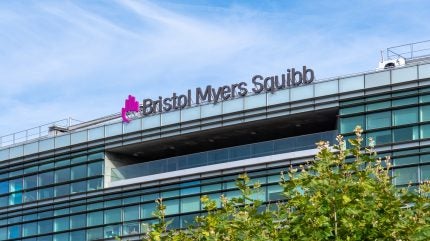
Bristol Myers Squibb (BMS) has received approval from the US Food and Drug Administration (FDA) for Opdivo to treat adults with resectable non-small cell lung cancer (NSCLC).
These adult patients have no known epidermal growth factor receptor mutations or anaplastic lymphoma kinase rearrangements.

Discover B2B Marketing That Performs
Combine business intelligence and editorial excellence to reach engaged professionals across 36 leading media platforms.
The approval covers the use of Opdivo as a neoadjuvant treatment in combination with platinum-doublet chemotherapy, followed by the therapy as a single-agent adjuvant treatment post-surgery.
It is based on the results from the Phase III CheckMate-77T trial. It is the second positive trial for an immunotherapy-based combination in treating resectable NSCLC.
Opdivo is now the sole programmed cell death protein 1 (PL-1) inhibitor proven to benefit patients compared to chemotherapy, both as a neoadjuvant regimen and within a perioperative framework.
BMS US Oncology and Hematology senior vice-president Wendy Short Bartie said: “This milestone expands the role of Opdivo-based treatments and builds upon the foundation set by the FDA approval of neoadjuvant-only Opdivo plus chemotherapy in resectable NSCLC based on the CheckMate-816 trial.

US Tariffs are shifting - will you react or anticipate?
Don’t let policy changes catch you off guard. Stay proactive with real-time data and expert analysis.
By GlobalData“With this new Opdivo-based regimen, we are reinforcing our commitment to helping improve patient outcomes and expanding our thoracic portfolio in early-stage disease.”
The CheckMate-77T trial compared the Opdivo regimen with a control arm receiving platinum-doublet chemotherapy and placebo.
The study demonstrated a 42% reduction in the risk of disease recurrence, progression, or mortality in the Opdivo arm, with an event-free survival (EFS) hazard ratio of 0.58.
At 18 months, 70% of subjects in the Opdivo arm showed EFS, compared to 50% in the control arm.
Additionally, patients treated with Opdivo achieved a 25% pathological complete response rate, significantly higher than the 4.7% observed in the comparator arm.
In July this year, BMS reported a dip in net income of $1.7bn during the second quarter of 2024, a 19% decrease compared to $2.1bn for the same period of last year.




